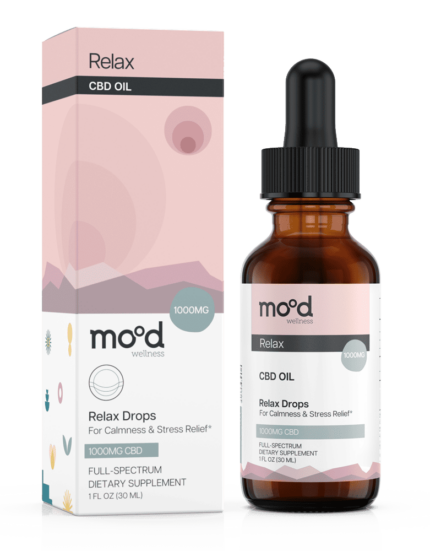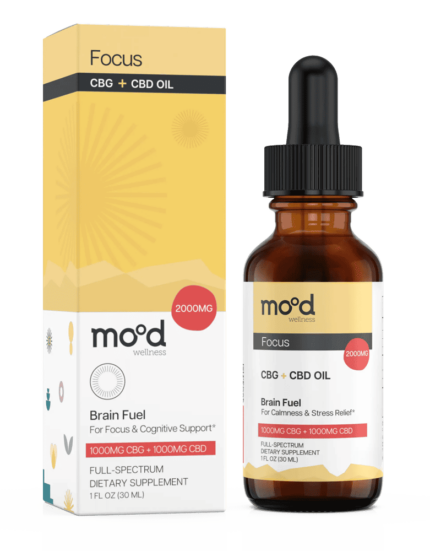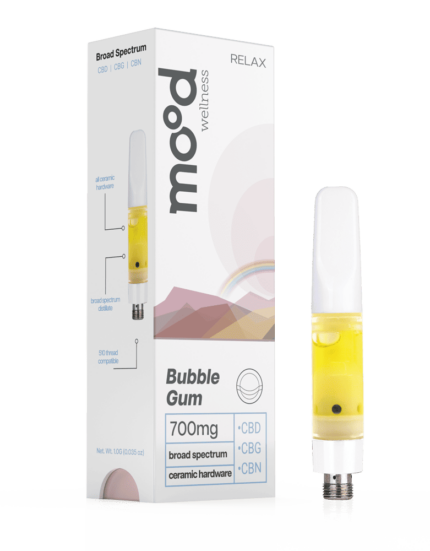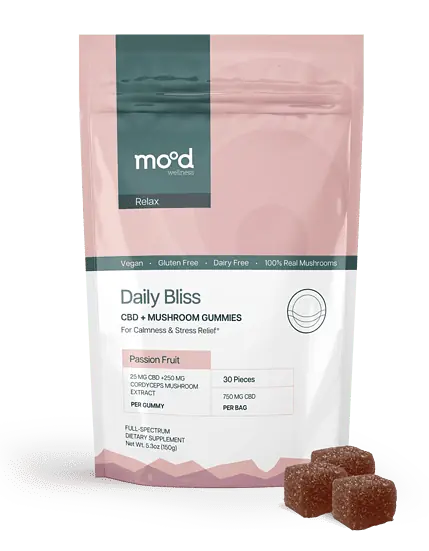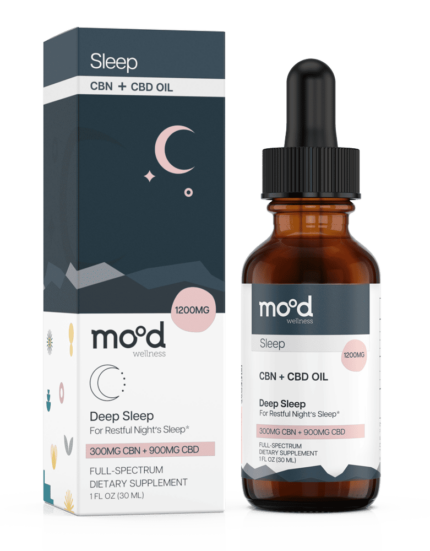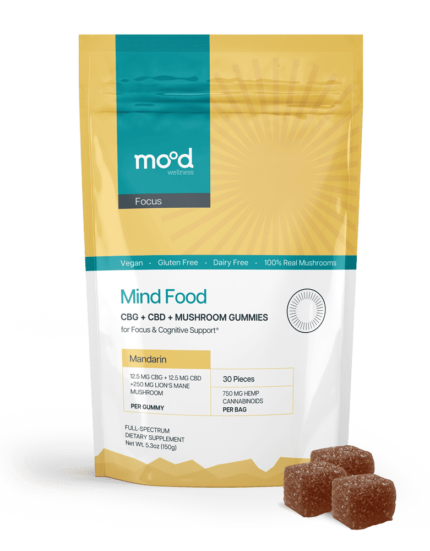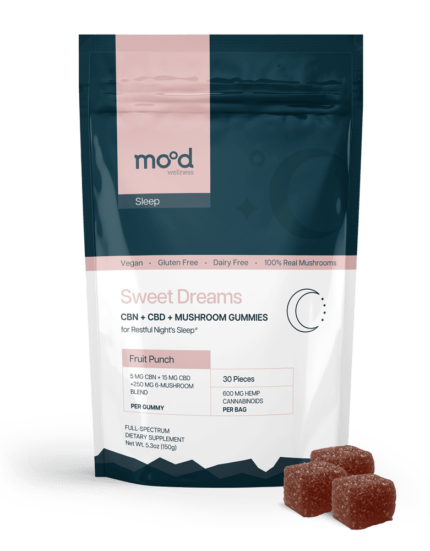Functional mushrooms have been used in traditional medicine for centuries, but only recently has the scientific community begun to understand their potential health benefits. From boosting immunity and improving mood to providing antioxidant protection, mushrooms are a powerful natural remedy that can be added to your diet.
But not all mushrooms are created equal— there is an entire world of functional mushrooms with unique properties and benefits.
In this article, we will explore the types of functional mushrooms available and what makes them special.
We’ll also discuss the potential health benefits associated with consuming these fungi and how you can incorporate them into your daily routine for maximum benefit.
So let’s dive in and discover the amazing world of functional mushrooms!
What Are Functional Mushrooms?
Functional mushrooms are a group of fungi that have been traditionally used for their health-promoting properties.
Unlike culinary mushrooms, which are primarily used for their flavor and texture in cooking, functional mushrooms have been valued for their medicinal and therapeutic benefits.
Mushrooms have a long history of use in traditional Chinese medicine,
where they are known as “adaptogens” due to their ability to help the body adapt to stressors and promote overall well-being.
These mushrooms contain bioactive compounds such as beta-glucans, polysaccharides, triterpenoids, and sterols, which have been shown to possess antioxidant, anti-inflammatory, and immune-boosting properties.
Today, they are increasingly being studied by Western scientists for their potential health benefits.
For example, research has shown that reishi mushrooms may help lower blood pressure, reduce cholesterol levels, and improve sleep quality.
Lion’s mane mushrooms may help improve cognitive function and memory, while Cordyceps mushrooms have been studied for their potential to enhance athletic performance and increase energy levels.
These mushrooms can be consumed in a variety of forms, including teas, powders, capsules, and tinctures.
In recent years, functional mushrooms have gained popularity as a natural alternative to traditional medicine for various health concerns.
However, it’s important to note that more research is needed to fully understand the health benefits and potential risks associated with consuming functional mushrooms.
The History of Functional Mushrooms
Functional mushrooms, also known as medicinal mushrooms, have been used for their healing properties for centuries.
Although they have recently gained popularity in the West, functional mushrooms have a long and rich history in traditional Chinese and Indian medicine.
The earliest written record of functional mushrooms dates back to around 600 BC, when Shen Nong, a Chinese emperor and herbalist,
wrote about their therapeutic benefits in his medical texts.
In ancient China, functional mushrooms were highly valued for their ability to improve overall health and vitality.
They were used to treat a wide range of ailments, including respiratory issues, digestive problems, and even chronic illnesses.
Traditional Chinese medicine practitioners believed that functional mushrooms could help balance the body’s energy,
or qi, and restore the natural harmony between body and mind.
Similarly, in Ayurvedic medicine, functional mushrooms were prized for their ability to boost the immune system and fight off disease.
They were also used to promote longevity, improve mental clarity, and enhance spiritual awareness.
Ayurvedic practitioners believed that functional mushrooms could help balance the three doshas and restore balance to the body and mind.
Functional mushrooms have also been used in other traditional medical systems, including Japanese and Korean medicine.
In Japan, shiitake mushrooms were highly valued for their anti-inflammatory properties and were used to treat conditions like arthritis and high blood pressure.
In Korea, the reishi mushroom was used to boost immunity and improve liver function.
Functional mushrooms have a long and rich history in traditional medicine and continue to be valued for their healing properties today.
As the science of functional mushrooms continues to evolve, it is likely that we will discover even more ways in which these powerful fungi can improve our health and well-being.
The Science Behind Adaptogenic Mushrooms
Adaptogenic mushrooms have become a popular trend in the health and wellness world, but what is the science behind these magical little fungi?
Adaptogenic mushrooms contain a variety of bioactive compounds,
including polysaccharides and triterpenoids, which have been shown to have anti-inflammatory, antioxidant, and immune-boosting properties.
These compounds work together to help the body adapt to stress and maintain overall health and well-being.
One of the key ways that adaptogenic mushrooms work is by regulating the hypothalamic-pituitary-adrenal (HPA) axis,
which is the body’s stress response system.
When we experience stress, our bodies release a hormone called cortisol, which can have negative effects on our health if it remains elevated for long periods.
Adaptogenic mushrooms help regulate the HPA axis, reducing the release of cortisol and promoting a more balanced stress response.
Research has also shown that adaptogenic mushrooms can help boost the immune system, which is important for overall health and disease prevention.
Studies have shown that some types of adaptogenic mushrooms, such as reishi and chaga, contain compounds that can enhance the activity of immune cells like natural killer (NK) cells.
Cells that help fight off infections and cancer cells.
In addition, some studies have shown that lion’s mane mushrooms may help improve cognitive function in people with mild cognitive impairment,
while cordyceps mushrooms may help improve exercise performance and reduce fatigue.
Overall, the science behind adaptogenic mushrooms suggests that they may have a variety of potential health benefits,
particularly in terms of stress reduction, immune system support, and disease prevention.
While more research is needed to fully understand the effects of these mushrooms,
they are a promising area of study in the field of natural medicine.
Types of Functional Mushrooms:
Exploring the Health Benefits of These Superfoods
There are many different types of functional mushrooms, each with its own unique set of health benefits.
Here are some common varieties and the potential benefits associated with them:
Reishi: The Mushroom of Immortality
For centuries, Reishi has been known as the “Mushroom of Immortality” and used as an adaptogenic medicine in traditional Chinese practices.
This unique fungus can be easily spotted by its fan-shaped cap, which boasts a glossy reddish-brown hue and varnished appearance.
Found mostly in forested areas, Reishi thrives on dead trunks, stumps, and branches.
Reishi (Ganoderma lucidum) is packed with essential compounds such as polysaccharides, terpenoids, and phenolics
that contribute to maintaining a healthy immune system, reducing stress levels, and balancing hormones.
But that’s not all! Emerging research suggests that Reishi’s calming effects on the nervous system may also improve sleep quality,
making it an ideal natural sleep aid.
With its wide range of benefits, including immune support and natural sleep enhancement,
Reishi is quickly becoming a top choice for overall wellness supplementation.
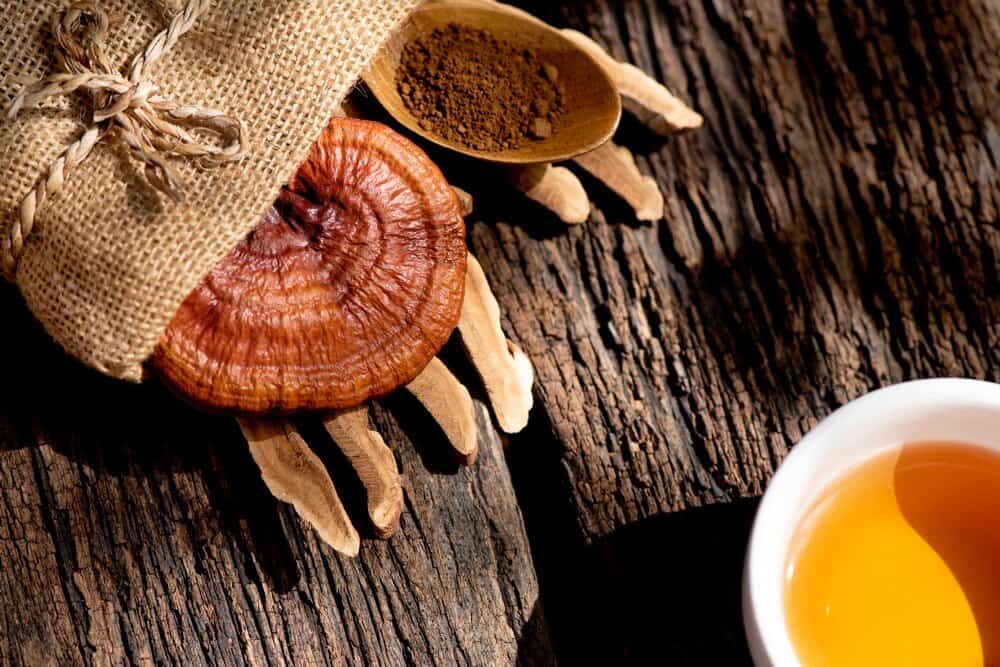
Chaga: The Antioxidant Powerhouse
Chaga (Inonotus obliquus) is also known as the Antioxidant Powerhouse.
These fungi thrive on the bark of birch trees in colder regions,
including Siberia, Northern Europe, North America, and Canada.
Chaga is a rich source of bioactive compounds that possess potent antioxidant properties,
such as polysaccharides, betulinic acid, and melanin.
These compounds may help prevent and reduce oxidative damage caused by free radicals in the body,
thereby promoting optimal cellular health.
Furthermore, chaga’s anti-inflammatory properties may also support healthy inflammation levels,
which are crucial for maintaining overall well-being.
In addition to its antioxidant and anti-inflammatory effects,
Chaga may also have immune-boosting properties that help improve the body’s defense against infections and diseases.
Research indicates that Chaga’s bioactive compounds may also help promote healthy cholesterol levels and reduce stress-induced hormones,
leading to improved mental health and stress resilience.

Cordyceps: The Mushroom for Energy and Endurance
Cordyceps (cordyceps militaries) mushroom is most commonly found in the Himalayas,
where it has been used for centuries in traditional Chinese medicine.
One of the most amazing benefits of cordyceps is its ability to naturally improve vitality and stamina.
It achieves this by supporting respiration, oxygen delivery and ATP synthesis,
resulting in increased energy production at the cellular level.
This increased production of ATP, the main source of energy for cells,
can lead to improved endurance and physical performance.
In addition, cordyceps is rich in antioxidants that help protect against oxidative stress and damage,
which can contribute to premature aging and age-related diseases.
This wonder mushroom also has potential mental health benefits,
with compounds that may help calm the mind and body to promote relaxation and stress relief.
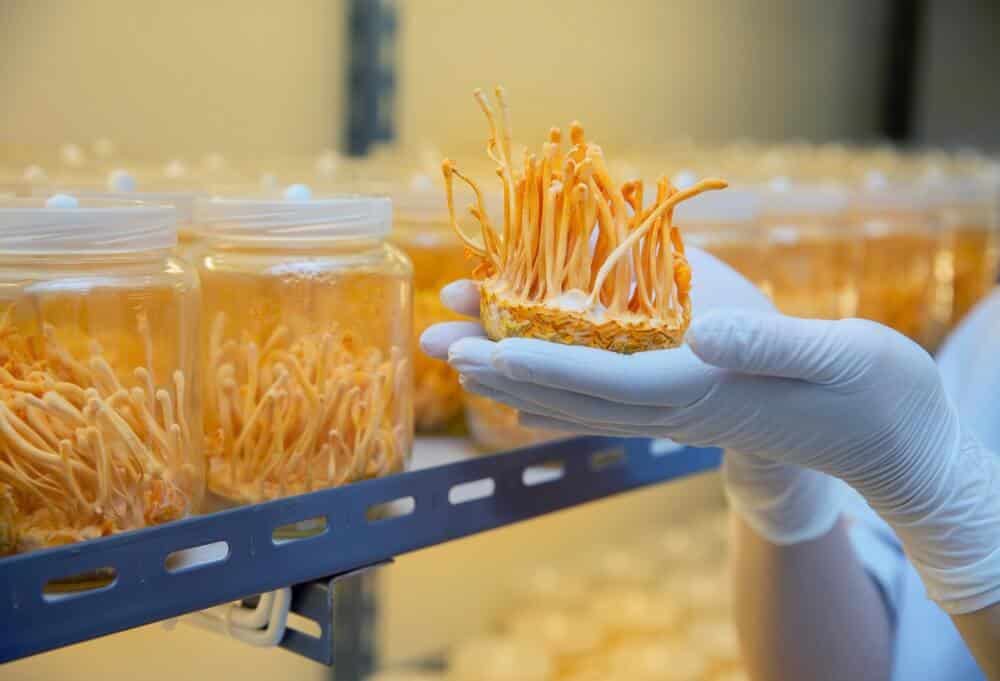
Lion’s Mane: The Brain-Boosting Mushroom
Lion’s mane (Hericium erinaceus) is an extraordinary medicinal mushroom known for its ability to support brain health and cognitive function.
This spiky white mushroom can grow up to 12 inches tall and gets its name from its resemblance to a lion’s mane.
Its unique bioactive compounds stimulate the synthesis of nerve growth factor (NGF),
a protein essential for the growth and maintenance of nerve cells in the brain.
By promoting NGF synthesis, lion’s mane mushroom can improve memory,
concentration and overall brain performance.
But lion’s mane mushroom isn’t just a powerful brain booster.
This adaptogenic mushroom has been consumed for centuries in Asia as a medicinal food and has a wide range of health benefits.
Studies have shown that lion’s mane mushroom can reduce cholesterol levels, prevent cancer and improve digestive function.
The lion’s mane mushroom is one of the most popular medicinal mushrooms in the world, and for good reason.
Its ability to contribute to the health of our nervous system and strengthen cognitive activity in the brain,
makes it a strong ally for anyone looking to optimize their mental performance.
In addition to its cognitive benefits, the lion’s mane mushroom can also contribute to the health of our cardiovascular system.
It has been proven that the lion’s mane mushroom reduces feelings of stress and anxiety,
and helps to promote a sense of calm and balance, which can help maintain healthy heart function and prevent heart disease.
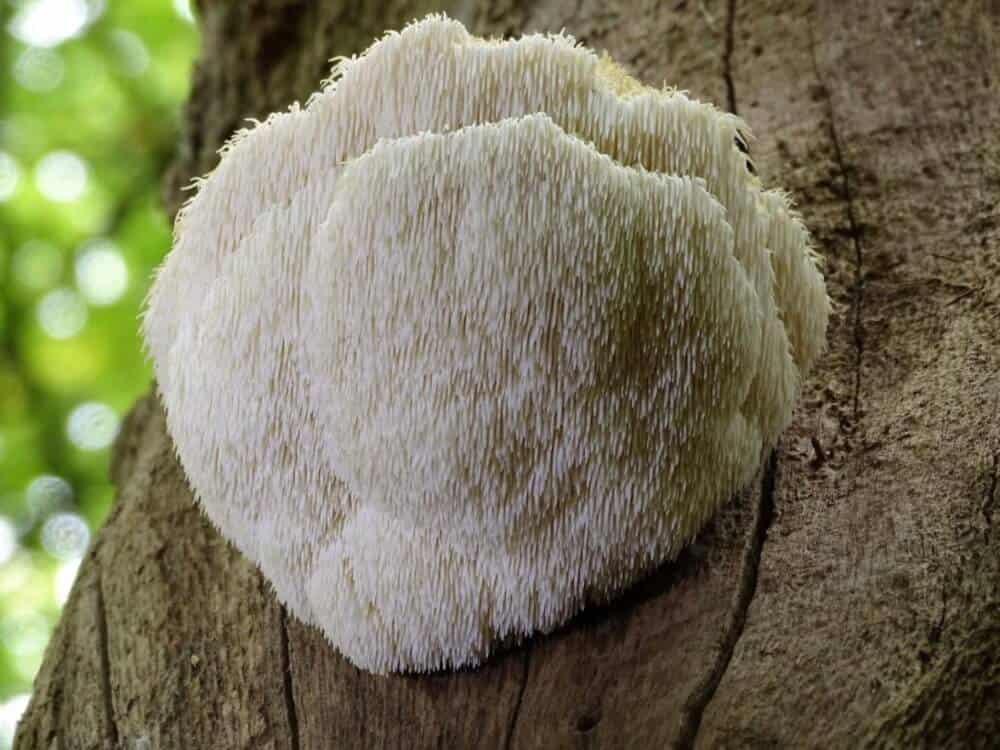
Turkey Tail: The Immune System Supporter
Turkey Tail is a type of mushroom that is widely recognized for its impressive health benefits.
It is also known as Trametes versicolor or Coriolus versicolor and is commonly found in the woods of North America, Europe, and Asia. This mushroom has been used for centuries in traditional medicine, and modern research has validated its potential to boost the immune system and fight off diseases.
The name “Turkey Tail” comes from the mushroom’s fan-like shape and multicolored rings, which resemble the tail feathers of a wild turkey. It has a tough texture and is not edible, but it can be dried and ground into a powder for use in teas, soups, and other recipes.
Turkey Tail is known for its high concentration of polysaccharides, which are complex carbohydrates that stimulate the immune system. Studies have shown that these polysaccharides can enhance the body’s ability to fight off infections, viruses, and other diseases. Additionally, Turkey Tail has been shown to possess potent antioxidant properties, which can help protect against cellular damage caused by free radicals.
Research has also suggested that Turkey Tail may be beneficial in supporting gut health and preventing certain types of cancer. It contains compounds called beta-glucans that can promote the growth of beneficial gut bacteria and improve digestion. Furthermore, studies have found that Turkey Tail can help boost the immune system’s response to cancer cells, potentially inhibiting the growth and spread of certain types of cancer.

Shiitake: The Delicious and Nutritious Mushroom
Shiitake is a type of edible mushroom that originated in East Asia and has become popular worldwide
for its unique flavor and numerous health benefits.
It is also known as Lentinula edodes and is a staple ingredient in many Asian dishes,
including soups, stir-fries, and sushi.
Shiitake mushrooms are packed with essential vitamins and minerals such as
Vitamin C, zinc, copper, selenium, B vitamins, folate, and vitamin D.
Research has shown that Shiitake mushrooms possess several health benefits.
They contain a compound called beta-glucan,
which has been found to boost the immune system and help fight off infections.
Additionally, Shiitake mushrooms contain several other bioactive compounds,
including polysaccharides and terpenoids, which have anti-inflammatory and anti-cancer properties.
Studies have also suggested that Shiitake mushrooms may be beneficial for heart health.
They contain compounds that can help lower cholesterol levels and improve blood flow, reducing the risk of heart disease and stroke.
Shiitake can be enjoyed in a variety of ways, including sautéed, grilled, or added to soups and stews.
They are also available in supplement form, which may be useful for those who want to benefit from their health-promoting properties but don’t enjoy the taste.
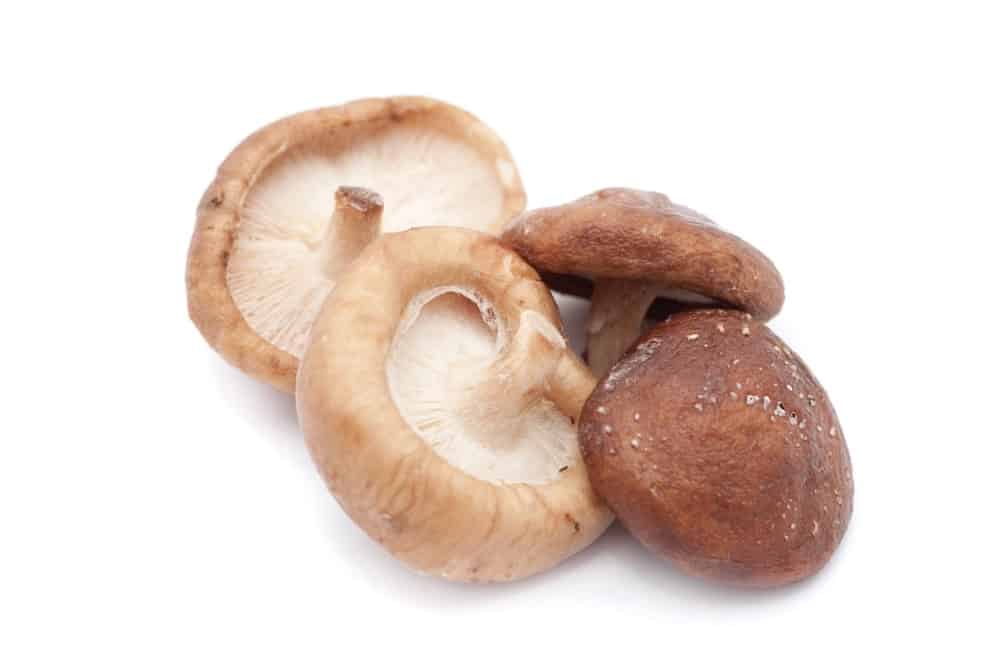
Maitake: The King of Mushrooms
Maitake, also known as Grifola frondosa,
is a type of mushroom that grows in clusters at the base of trees, particularly oaks.
It is native to Japan, North America, and Europe and has been used
for centuries in traditional Chinese and Japanese medicine.
Maitake mushrooms have a distinct appearance, with large, fan-shaped caps that can grow up to 50 cm.
The caps have a wavy, layered structure and are usually brownish-grey in color.
Maitake mushrooms are known for their rich, earthy flavor and meaty texture, making them a popular ingredient in many dishes.
Maitake mushrooms are highly valued for their health benefits.
They are rich in antioxidants, beta-glucans, and polysaccharides,
which are believed to have immune-boosting properties.
Research has shown that maitake mushrooms may help lower blood sugar levels, reduce inflammation,
and improve cholesterol levels.
They may also have anti-cancer properties, with some studies suggesting that maitake mushrooms can help slow the growth of tumors and improve the effectiveness of chemotherapy.
Maitake mushrooms are also a good source of vitamins and minerals, including vitamin D, potassium, and copper.
They are low in calories and fat, making them a healthy addition to any diet.
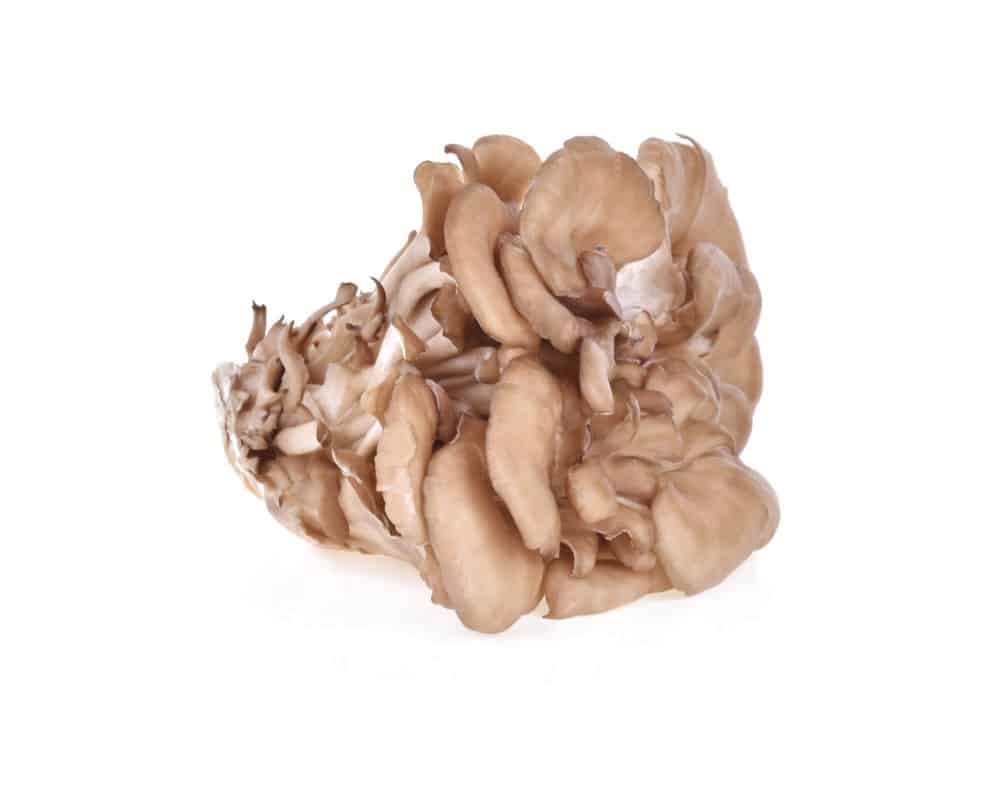
What Are The Active Compounds in Functional Mushrooms?
Functional mushrooms have gained popularity in recent years for their potential health benefits.
One of the reasons why functional mushrooms are so unique is that they contain various active compounds that have been found to have beneficial effects on the human body.
These compounds include polysaccharides, terpenoids, ergosterols, and adenosines, among others.
In this section, we will explore each of these active compounds in detail, examining their unique properties and how they may benefit human health.
Polysaccharides: The Source of Many Mushroom Benefits
Polysaccharides are complex carbohydrate molecules composed of many sugar units linked together in a chain-like structure. These long chains of sugar are commonly found in plant and fungal cells.
The way the sugars are arranged in the chain and how they are connected determine the structure
of the polysaccharide and its effects.
Polysaccharides found in functional mushrooms have been extensively studied for their numerous health benefits.
They have been found to possess immunomodulatory, anti-inflammatory, and antioxidant properties.
Polysaccharides can help enhance the immune system’s function by stimulating the production of immune cells and promoting their activity against foreign invaders such as bacteria and viruses.
Apart from immune-boosting effects, polysaccharides have been shown to exert protective effects on the liver, kidneys, and digestive system.
They can help regulate blood glucose levels, reduce cholesterol absorption, and improve insulin sensitivity,
making them potentially beneficial for people with diabetes and metabolic disorders.
Different types of polysaccharides found in functional mushrooms can have varying effects on human health.
For example, beta-glucans are a type of polysaccharide found in many functional mushrooms,
and they are known for their potent immune-boosting effects.
Other types of polysaccharides found in functional mushrooms,
such as alpha-glucans and heteropolysaccharides, have also been shown to have immunomodulatory and other health-promoting effects.
How Beta-Glucans Work to Boost Your Immune System
Beta-glucans are a type of polysaccharide that is found in the cell walls of many plants and fungi,
including functional mushrooms.
They are long chains of glucose molecules that are linked together in a specific way to create a complex structure.
Beta-glucans have been extensively studied for their health benefits, particularly for their immune-boosting properties.
They have been found to activate immune cells such as macrophages, natural killer cells, and neutrophils,
which are essential for fighting off infections and diseases.
In addition to their immune-boosting properties, beta-glucans have also been found to have other health benefits.
They have been shown to help regulate blood sugar levels, lower cholesterol levels, and reduce inflammation in the body.
Beta-glucans may also have potential anticancer properties,
as some studies have shown that they can inhibit the growth of cancer cells.
There are different types of beta-glucans, depending on the source they are derived from and their molecular structure.
For example, beta-glucans from oats have a different structure than those from mushrooms.
The specific structure of the beta-glucans determines their biological activity and potential health benefits.
Triterpenoids: The Anti-Inflammatory Compounds in Mushrooms
Triterpenoids are a class of organic compounds that are widely distributed in nature, including in many plants and fungi,
and are known for their diverse and important biological activities.
They are composed of multiples of a basic building block called isoprene,
which consists of five carbon atoms.
Triterpenoids have been found to have a wide range of health benefits.
They possess anti-inflammatory, antioxidant, and anti-tumor properties.
Triterpenoids have been also shown to help modulate the immune system and enhance the body’s ability
to fight off infections and diseases.
In addition, triterpenoids have been found to help lower cholesterol levels in the body,
which is important for maintaining heart health.
One of the most well-known types of triterpenoids is ganoderic acid,
which is found in high concentrations in Reishi mushrooms.
Ganoderic acid has been shown to possess a wide range of health benefits,
including immune-boosting, anti-inflammatory, and anti-tumor effects.
It has also been found to help regulate blood sugar levels in the body, making it useful for people with diabetes.
Another type of triterpenoid, oleanolic acid, is found in many different types of mushrooms,
including Shiitake, Maitake, and King Trumpet mushrooms.
Oleanolic acid has been found to possess anti-inflammatory and antioxidant properties,
and has been shown to help protect the liver from damage caused by toxins and other harmful substances.
Ergothioneine: The Antioxidant You’ve Never Heard Of
Ergosterols are a type of steroid compound found in the cell membranes of mushrooms.
These compounds are particularly interesting because they serve as precursors to vitamin D2,
an essential nutrient for the human body.
When mushrooms are exposed to sunlight or ultraviolet light,
ergosterols in their cell membranes are converted into vitamin D2,
which can be utilized by the human body.
Vitamin D2 is important for several functions in the body, including maintaining healthy bones and teeth.
It is also involved in regulating the immune system and promoting the absorption of calcium and phosphorus in the gut.
Some mushrooms, such as shiitake, maitake, and portobello, are particularly rich in ergosterols
and are therefore an excellent source of vitamin D2 for people who don’t get enough sun exposure.
In fact, mushrooms are one of the few food sources of vitamin D2,
making them an important dietary source of this essential nutrient.
Adenosines: Immune-Boosting Compounds in Mushrooms
Adenosines are a group of nucleotides,
which are organic molecules that serve as the building blocks of nucleic acids such as DNA and RNA.
Adenosines are composed of a molecule called adenine, a nitrogenous base, attached to a ribose sugar and one or more phosphate groups.
They are found naturally in many organisms, including fungi such as Cordyceps and Shiitake mushrooms.
Adenosines have been found to possess various health benefits.
They have been shown to have anti-inflammatory and anti-tumor properties,
which may be beneficial in preventing and treating certain types of cancer and chronic diseases.
Additionally, adenosines have been found to improve circulation in the body, which is important for maintaining good heart health.
Adenosines are also believed to have a calming effect on the body.
In traditional medicine, Cordyceps mushrooms have been used as an adaptogen,
a natural substance that helps the body adapt to stress and balance its functions.
Adenosines are thought to be one of the compounds responsible for this effect.
Comparison table between the active ingredients
| Active Ingredient | Interaction with the Body | Potential Benefits | Found in Mushrooms |
|---|---|---|---|
| Beta-glucans | Activates immune cells such as macrophages and natural killer cells, interacts with gut microbiota to regulate immune response and improve gut health | Boost immune system, reduce inflammation, lower cholesterol levels, promote cardiovascular health, enhance wound healing, improve gut health, regulate blood sugar levels | Shiitake, Reishi, Maitake, Turkey Tail, Chaga, Cordyceps |
| Triterpenoids | Interacts with immune cells and cytokines, has antioxidant and anti-inflammatory properties, protects liver and kidneys, enhances skin health and wound healing | Fight cancer cells, reduce inflammation, lower cholesterol levels, boost immune system, improve cognitive function, protect liver and kidneys, enhance skin health | Reishi, Chaga, Turkey Tail, Cordyceps |
| Ergosterols | Converted to Vitamin D2 by UV exposure, interacts with calcium regulation and thyroid function, has anti-inflammatory and antioxidant properties, supports skin health and wound healing | Promote bone health, boost immune system, regulate calcium levels, reduce inflammation, support thyroid function, enhance skin health, improve mood | Button, Shiitake, Maitake |
| Adenosines | Regulates adenosine receptors in the body, has anti-inflammatory and antioxidant properties, improves liver function and blood flow, enhances athletic performance and sleep quality | Improve liver function, lower blood pressure, reduce inflammation, enhance athletic performance, improve sleep quality, promote heart health | Cordyceps |
What Are The Potential Benefits of Functional Mushrooms?
Functional mushrooms have been used for centuries for their numerous health benefits.
These mushrooms are packed with bioactive compounds that can support various aspects of our health,
based on scientific research and studies.
Some of the potential benefits of functional mushrooms include:
🛡️ Immune support
The immune system is essential for fighting off infections and diseases,
and some beneficial mushrooms can help support its function.
Reishi and Shiitake mushrooms, for example, contain beta-glucans that can stimulate the production of white blood cells,which are crucial for fighting infections and other foreign invaders.
🔥 Anti-inflammatory properties
Inflammation is a natural response by the body to injury or infection,
but chronic inflammation can lead to various health problems like heart disease and cancer.
The beta-glucans and polysaccharides found in functional mushrooms can help reduce inflammation in the body,
making them a potential natural remedy for inflammation-related conditions.
💪 Antioxidant properties
Antioxidants are compounds that help protect the body from free radicals,
which can cause cellular damage and lead to chronic diseases.
Functional mushrooms are rich in antioxidants like ergothioneine and glutathione,
which can help prevent oxidative stress and reduce the risk of chronic diseases.
🧠 Improved cognitive function
Cognitive decline is a common problem as we age,
but some mushrooms may help improve brain function and reduce the risk of cognitive decline.
For example, Lion’s Mane mushroom contains compounds called hericenones and erinacines,
which have been shown to stimulate nerve growth and improve cognitive function in animal studies.
🌱 Gut health
The gut microbiome plays a crucial role in our overall health, and functional mushrooms can help support a healthy gut.
The prebiotic fibers found in functional mushrooms can feed beneficial gut bacteria,
which can improve digestion and reduce the risk of various digestive disorders.
Some mushrooms like Chaga and Turkey Tail have been shown to possess anti-inflammatory properties that can help soothe digestive issues like Irritable Bowel Syndrome (IBS) and Inflammatory Bowel Disease (IBD).
💓 Blood pressure regulation
High blood pressure is a common health problem that can lead to serious conditions like heart disease and stroke.
Some functional mushrooms, such as Shiitake and Maitake,
have been shown to contain compounds that can help regulate blood pressure.
Shiitake mushrooms, for example, contain a compound called eritadenine, which has been shown to reduce blood pressure levels in animal studies.
While more research is needed in humans, functional mushrooms may hold promise as a natural remedy for blood pressure regulation.
🌟 Skin health
The antioxidant and anti-inflammatory compounds found in mushrooms may help improve skin health and prevent premature aging.
For example, the beta-glucans found in Reishi mushrooms may help improve
skin elasticity and reduce the appearance of fine lines and wrinkles.
🚫 Anti-cancer properties
Some mushrooms, such as Turkey Tail and Shiitake,
have been shown to have anti-cancer properties in animal and test-tube studies.
These mushrooms contain compounds like polysaccharides and beta-glucans,
which may help inhibit the growth of cancer cells and improve immune function to fight cancer.
🦠 Anti-viral properties
Mushrooms like Reishi and Cordyceps have been shown to have anti-viral properties,
which may help prevent and treat viral infections like influenza and the common cold.
👨⚕️ Liver health
The liver plays a crucial role in detoxifying the body, and some functional mushrooms may help support liver health.
For example, the antioxidant compounds found in Chaga mushrooms may help protect liver cells from damage and reduce inflammation in the liver.
Functional mushrooms offer numerous potential benefits for our health and well-being, and incorporating them into our diet can be a natural and effective way to support our immune system, reduce inflammation, improve cognitive function, regulate blood pressure, and promote a healthy gut. As with any supplement, it’s important to consult with your healthcare provider before incorporating functional mushrooms into your routine.
Do Functional Mushrooms Have Psychedelic Effects?
No, functional mushrooms do not have any known psychedelic effects.
People often confuse functional mushrooms with psychedelic mushrooms, but the two are actually very different.
Functional mushrooms contain beneficial compounds like beta-glucans, polysaccharides, and antioxidants.
They are safe to consume and can provide various health benefits such as improved energy levels,
better heart health, and improved digestion.
In contrast, psychedelic mushrooms contain psilocybin, a psychoactive compound that produces hallucinogenic and powerful altered state of consciousness effects.
These mushrooms can be dangerous and cause serious physical and mental reactions.
Moreover, they are often illegal in many countries because of their ability to alter consciousness and create altered states of awareness.
Therefore, functional mushrooms and psychedelic mushrooms are vastly different from each other, and it is important to understand the difference between them to avoid any confusion. Incorporating functional mushrooms into your diet can be an excellent way to support your overall health and wellness without any known psychedelic effects.
Do Functional Mushrooms Are legal?
Yes, functional mushrooms are generally legal to purchase and consume.
Different countries have their regulations,
but in most cases, functional mushrooms are considered dietary supplements and can be found online or in health food stores.
However, it is important to read labels carefully and make sure that the product you buy is free from other ingredients
or additives and is of high quality.
How To Consume Functional Mushrooms?
There are several ways to consume functional mushrooms,
and choosing the best method can depend on your preferences and lifestyle.
In this section, we’ll discuss the different ways to consume functional mushrooms,
so that you can make an informed decision and enjoy their potential health benefits.
Here are some additional details about the different ways you can use functional mushrooms:
💧Tinctures
Concentrated liquid extract of functional mushrooms that are made by soaking them in alcohol or another solvent.
This process helps to extract the active compounds from the mushrooms.
Tinctures have a long shelf life, are easy to use, and can be added to a variety of beverages, such as tea, coffee, or smoothies.
They can also be taken directly under the tongue, making them a convenient option.
🍚 Powders
Functional mushroom powders are created by drying and grinding the mushrooms into a fine powder.
This process helps to concentrate the active compounds found in the mushrooms.
Mushroom powders are versatile and can be added to water, coffee, or other liquids,
or mixed into food, such as oatmeal or yogurt.
🍬 Gummies
Functional mushroom gummies are a sweet and convenient way to consume these beneficial fungi.
They are a great option for those who do not like the taste of mushrooms
or prefer a more enjoyable way to consume them.
Gummies are easy to take on the go and can be consumed as a snack or supplement.
💊 Capsules
Capsules are a popular way to consume functional mushrooms because they are easy to take
and have a long shelf life.
They are also a good option for those who do not like the taste of mushrooms.
Capsules can be taken with water or added to food,
making them a convenient way to incorporate functional mushrooms into your daily routine.
👨🍳 Cooking With Mushrooms
Functional mushrooms can be added to a variety of dishes, such as soups, stews, stir-fries, and salads.
Cooking with mushrooms is a delicious way to incorporate them into your diet while reaping their health benefits.
You can use fresh or dried mushrooms, depending on the recipe.
Some popular functional mushrooms to cook with include shiitake, lion’s mane, and reishi.
☕ Tea and coffee
Functional mushroom tea and coffee are becoming increasingly popular as a way to incorporate these beneficial fungi into your daily routine.
These beverages are typically made with mushroom powders or extracts and can be enjoyed hot or cold.
Mushroom tea and coffee are convenient and enjoyable ways to consume functional mushrooms.
In conclusion, functional mushrooms offer a variety of health benefits and can be consumed in many different ways.
By incorporating them into your daily routine, you can improve your overall health and well-being.
Whether you prefer tinctures, powders, gummies, or capsules there’s an option that will work for you.
Does Functional mushroom have side effects?
Functional mushrooms are generally considered safe for most people when consumed in appropriate amounts.
However, like any dietary supplement or food, there may be some potential side effects or risks associated with consuming functional mushrooms.
The most common side effects are:
- Nausea or vomiting: Some people may experience nausea or vomiting after consuming functional mushrooms, particularly if they consume too much or have a sensitivity to certain types of mushrooms.
- Headaches: Functional mushrooms may trigger headaches in some people, particularly if they contain compounds like tyramine or histamine.
- Insomnia: Some functional mushrooms may have stimulant effects and could interfere with sleep if consumed too close to bedtime.
Here are some things to consider:
- Allergic reactions: Some people may be allergic to certain types of mushrooms. If you have a known allergy to mushrooms,
it’s best to avoid functional mushrooms or consult with a healthcare professional before consuming them. - Interactions with medications: Certain functional mushrooms may interact with medications or supplements you’re taking.
For example, mushrooms that contain polysaccharides may increase the risk of bleeding if taken with blood-thinning medications like warfarin. - Digestive issues: Some people may experience digestive issues like bloating, gas, or diarrhea when consuming functional mushrooms. This may be due to the high fiber content in mushrooms.
- Heavy metal contamination: Mushrooms can absorb heavy metals from the environment, so it’s important to source functional mushrooms from reputable suppliers that test for heavy metal contamination.
It’s important to note that these side effects are generally rare,
and the potential benefits of consuming functional mushrooms may outweigh the risks for most people.
However, if you’re concerned about the potential risks or side effects of functional mushrooms, it’s always a good idea to consult with a healthcare professional before adding them to your diet
Conclusion
- Functional mushrooms have medicinal properties and are popular in the health and wellness world.
- Adaptogenic mushrooms can boost immunity, reduce stress, balance hormones, and more.
- Different types of functional mushrooms offer unique health benefits due to their active compounds such as
Beta-Glucans, Triterpenoids Ergothioneine & Polysaccharides. - Functional mushrooms are legal and can be consumed in various forms
such as tinctures, powders, gummies, or capsules. - It’s important to consult with a healthcare practitioner before taking any form of mushroom supplement.
